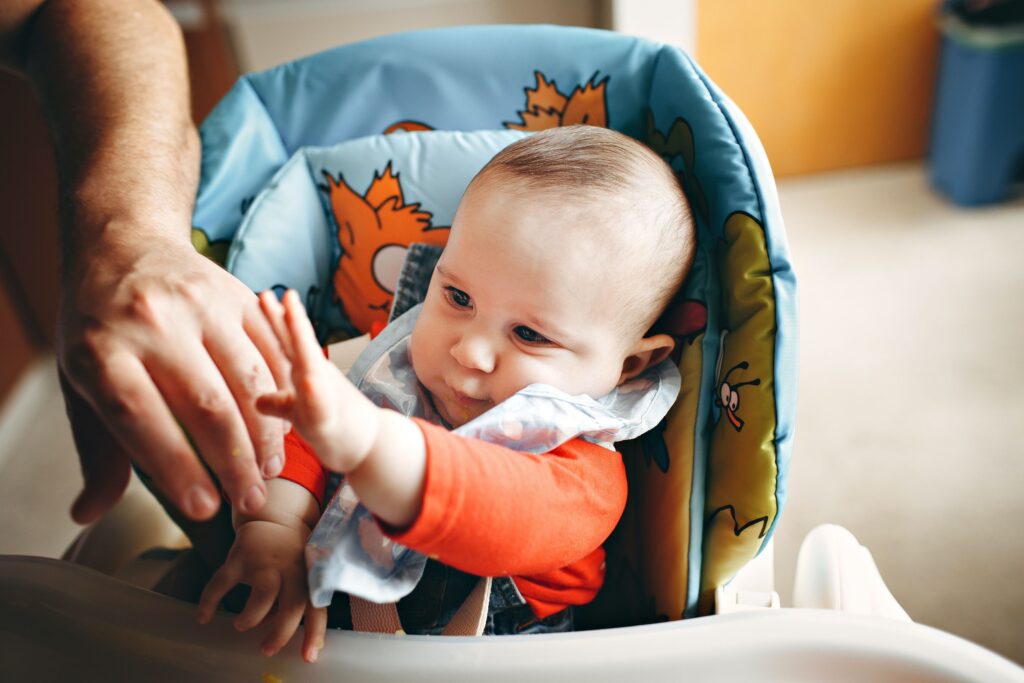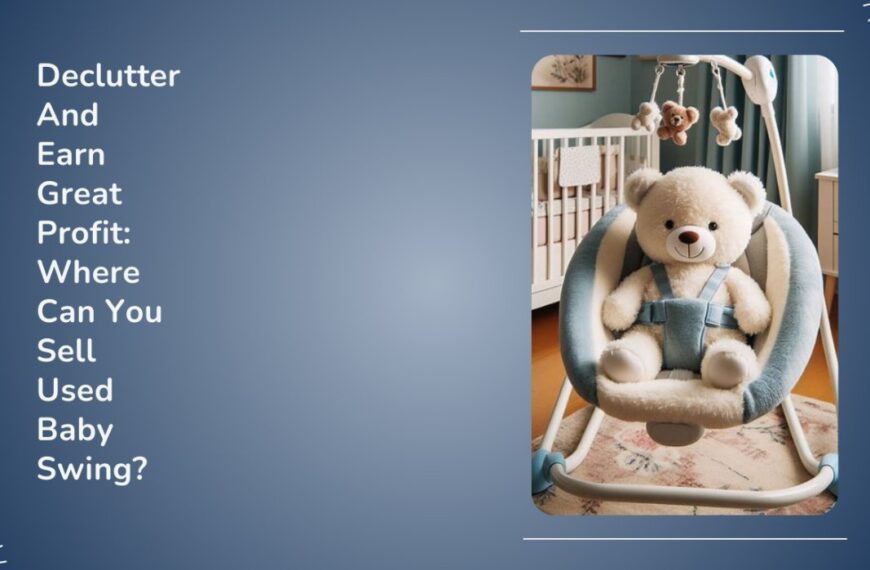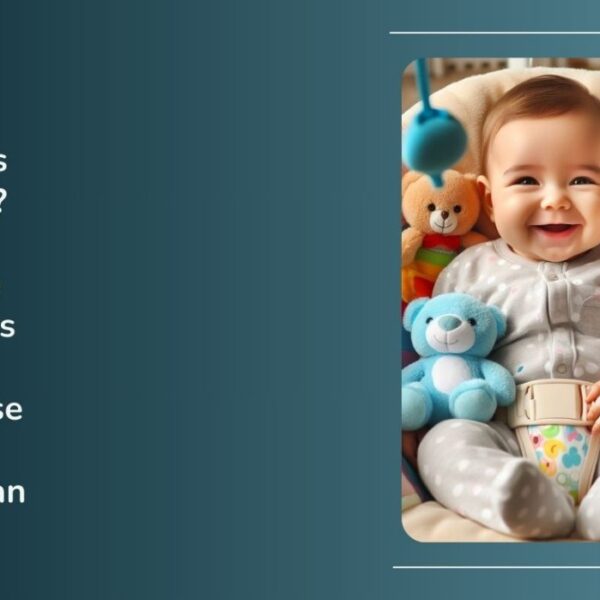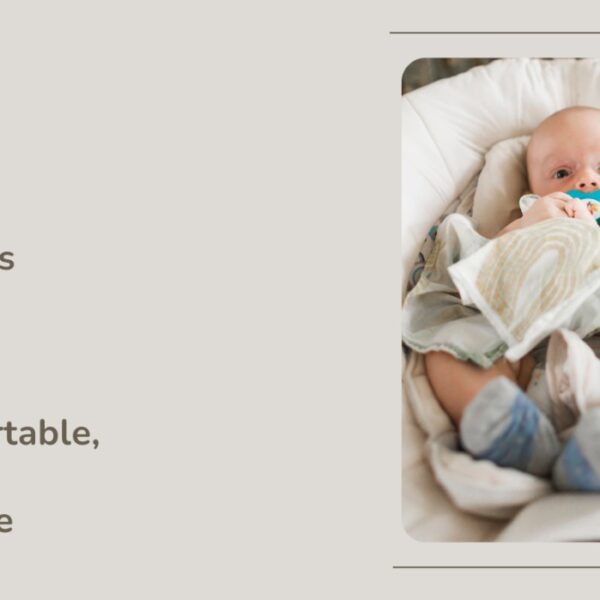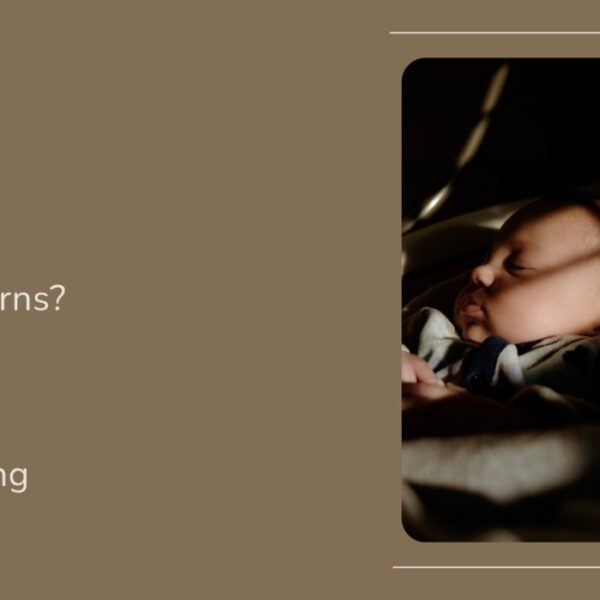Have you tried everything you can think of to make your baby’s colic go away?
I know colic can be challenging for both parents and babies. A baby crying for hours without apparent reason can be stressful and frustrating for any parent.
The parents who find possible solutions to soothe colicky babies found that one popular option is to use a baby swing.
But do baby swings really help with colic?
In this blog post, we’ll not only find the answer to this question “Do baby swings help with colic” but we’ll also see:
- What is Colic?
- Colic’s impact on little babies
- Symptoms and actual causes of colic
- What other remedies can be helpful in soothing the colicky baby? And much more.
Table of Contents
What is Colic?
Colic is a condition in which a healthy and well-fed baby cries for hours without apparent reason.
Colic is often defined by the “rule of three,” which states that a colicky baby cries for at least three hours a day, for at least three days a week, and remains for at least three weeks.
The exact reason for colic is still unknown, but it is believed to be a combination of factors like gas, digestive issues, reflux, overstimulation, or temperament.
This research shows that colic affects 10 % to 40% of babies worldwide, and it reaches its peak at 6 weeks old and then gradually gets better.
It typically begins around two to three weeks of age and can last until around three to four months.
People Also Read: Does Baby Swing Help With Gas
Impact of Colic on Infants and Parents
Colic can be a tough situation for both the baby and the parents.
Colic itself is not considered a harmful medical condition, but it can cause a lot of pain and distress for the baby.
The baby may cry for hours without stopping, have trouble sleeping and eating, and feel restless.
It affects parents’ well-being too.
Dealing with a colicky baby can be emotionally and physically draining for parents.
The constant crying can leave them feeling helpless, stressed, and exhausted.
It can also strain relationships and make it challenging to meet the needs of other family members.
Do baby swings help with colic?
Now, let’s focus on the main question. “Do baby swings help with colic?”
Well, the answer is YES, they can make a real difference!
Let me support my answer with pediatric research.
This research shows that vibrations with or without sound lessened the severity of colic in 97% of babies. Low-frequency vibrations with sound were most effective in reducing the colic effects in babies.
Now let’s see how baby swings can be a game changer for parents!
- Most baby swings come with different levels of vibrations and a playlist of built-in melodies and nature sounds.
The swings’ vibrations and white noise remind the baby of being in the mother’s womb, which soothes the colicky baby and gives a sigh of relief to the parents. - The back-and-forth movement mimics the soothing sensation of being cradled and rocked in a parent’s arms, which can work wonders in calming down a fussy baby and can give a much-needed break to parents’ arms.
- Melodies and Colorful toy bar of a baby swing can keep the baby entertained and happily distracted in the swing while parents are busy doing other important tasks or home chores.
There is no doubt that baby swings can offer potential benefits for babies with colic. But we must understand that not all babies will respond the same way. Each baby is unique, and what works for one may not work for another.
People Also Read: Best Swing Bouncer Combos
Symptoms and Causes of Colic
Let’s talk about the symptoms of colic in babies so you know what to look out for:
Colic Symptoms
Intense Crying:
Babies with colic cry a lot, like really long spells, for at least three hours a day, on three or more days each week, and this goes on for about three weeks.
Crying Time:
Colic episodes often happen in the late afternoon or evening. It’s like they save it up for the end of the day.
Signs of Discomfort:
When a baby has colic, you might notice signs of discomfort. They close their little hands, twist their backs, and have tight muscles. It’s not easy for them.
Extra Fussiness:
Babies with colic tend to be more irritable and fussy. They struggle to calm down and feel happy, even when they’re not crying.
Difficult to Soothe them:
Soothing them can be a real challenge. They often resist your attempts to calm them down, which can be frustrating for both baby and parent.
Causes of Colic
Pediatricians haven’t found the exact cause yet, but they have some possible explanations. So, let’s see what could be causing all this colic:
- Digestive issues can play a part. Gas, reflux, or other tummy problems can contribute to colic symptoms.
- Since a baby’s digestive system is still developing, its immaturity can lead to colic. It takes time for everything to work smoothly.
- Some babies are just extra sensitive to things around them. Loud noises, bright lights, or changes in their environment can set off their colic.
- Certain foods might not suit them. Food intolerances or sensitivities to stuff in breast milk or formula can trigger colic in some infants.
- Believe it or not, parental stress or anxiety could indirectly contribute to colic episodes. It’s essential for both baby and parent to find ways to stay calm.
Other Remedies to soothe colicky babies
Here are some other things you can do to help your baby with colic:
Swaddle your Baby:
Swaddling helps to mimic the feeling of being in the womb and can provide comfort and security.
Hold your Baby Close:
Skin-to-skin contact helps to promote bonding and can provide comfort and security.
Create a Calm and Soothing Environment:
Use soft lighting, soothing music, and white noise to create a calming environment for your baby.
Be Responsive to Your Baby’s Cues:
Pay attention to your baby’s cues and respond quickly to their needs. This will help them to feel safe and secure.
Take your Baby for a Walk:
The gentle movement of a stroller or carrier can be very soothing for babies.
Give your Baby a Massage:
A gentle massage can help to relax your baby and relieve any pain or discomfort they may be feeling.
Try Using a Pacifier:
Sucking can be very soothing for babies, and a pacifier can help relieve some of the colic symptoms.
Talk to Your Doctor:
Talk to your doctor if your baby’s colic is severe or does not improve with home treatment. They may recommend other treatments or medications that can help.
Conclusions
To sum it all up, baby swings can be a real help when it comes to dealing with colic.
Swings have gentle rocking motions and soothing features like melodies, nature sounds and vibrations that can make a big difference for babies and parents.
Swings can also give a well-deserved break to exhausted parents.
While not every baby will respond the same way, many parents have found baby swings to be super effective in calming their little ones during those tough colic moments.
You should also talk to your doctor about how your baby acts in the swing.
Strictly follow your doctor’s advice about using the swing and other ways to calm your baby’s colic.
I hope this blog post helped you to get your answer on “Do Baby Swings Help With Colic”.
Thanks for Reading!
Related Blog Posts
